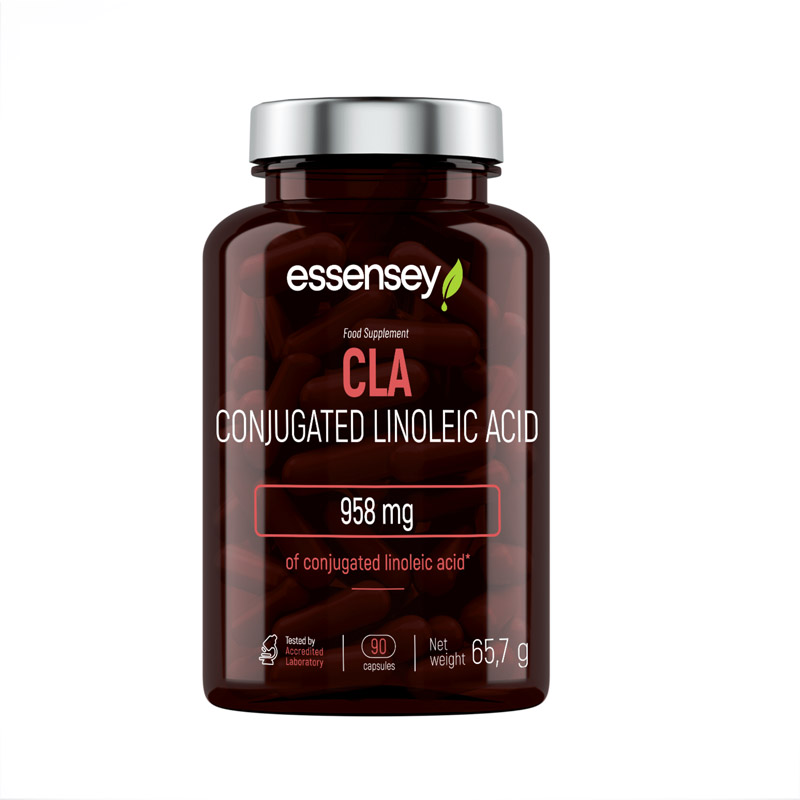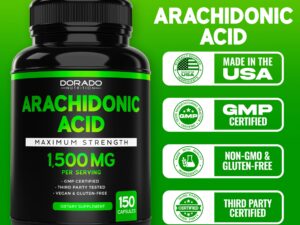Description
Linoleic Acid: The Essential Fatty Acid You Need to Know
In the vast world of fats, some are demonized while others are celebrated. Linoleic acid (LA) falls squarely into the latter category, being an essential fatty acid that plays a crucial role in maintaining overall health. But what exactly is linoleic acid, and why is it so important? Let’s dive in.
What is Linoleic Acid?
Linoleic acid is an omega-6 fatty acid, specifically a polyunsaturated fatty acid (PUFA). This means it contains multiple double bonds in its carbon chain. The “essential” part comes from the fact that our bodies cannot synthesize it, meaning we must obtain it through our diet.
Why is Linoleic Acid Essential?
Linoleic acid is a building block for several vital processes within our bodies. Here are some key reasons why it’s so important:
- Cell Membrane Structure: LA is a major component of cell membranes, contributing to their fluidity and integrity. Healthy cell membranes are crucial for proper cell function and communication.
- Production of Signaling Molecules: LA is a precursor to other fatty acids, including arachidonic acid (AA). AA is then converted into various signaling molecules called eicosanoids, such as prostaglandins, thromboxanes, and leukotrienes. These eicosanoids are involved in a wide range of physiological processes, including inflammation, blood clotting, and immune response.
- Brain Health: Being a component of cell membranes, LA contributes to healthy brain function. It may also play a role in cognitive function and mood regulation.
- Skin Barrier Function: LA helps maintain the skin’s barrier function, keeping it hydrated and protected from environmental stressors. Deficiency in LA can lead to dry, scaly skin and increased susceptibility to skin infections.
- Heart Health: While often associated with inflammation, studies suggest that adequate intake of LA may actually contribute to heart health. It can help lower LDL (“bad”) cholesterol and improve overall lipid profiles.
Where Can You Find Linoleic Acid?
Fortunately, linoleic acid is readily available in a variety of foods. Excellent sources include:
- Vegetable Oils: Sunflower oil, safflower oil, corn oil, soybean oil, and grapeseed oil are all rich in LA.
- Nuts and Seeds: Walnuts, flax seeds, sunflower seeds, and pumpkin seeds are good sources.
- Meat and Poultry: Although not as concentrated as in oils and seeds, meat and poultry contain some LA.
- Eggs: Eggs, particularly those from chickens fed LA-rich diets, can contribute to your LA intake.
Achieving the Right Balance:
For a long time, omega-6 fatty acids, including linoleic acid, were often viewed with suspicion due to their potential role in inflammation. However, emerging research emphasizes the importance of the balance between omega-6 and omega-3 fatty acids.
The ideal ratio of omega-6 to omega-3 fatty acids is still debated, but many experts recommend aiming for a ratio of around 4:1 or lower. This can be achieved by increasing your intake of omega-3 fatty acids, found in fatty fish like salmon, tuna, and mackerel, as well as flax seeds, chia seeds, and walnuts.
Potential Concerns and Considerations:
- Excessive Intake: While essential, excessive intake of linoleic acid, particularly in the absence of sufficient omega-3 fatty acids, could contribute to inflammation. However, this is often associated with highly processed, inflammatory diets.
- Oxidation: LA is susceptible to oxidation, especially when heated at high temperatures. Use oils rich in LA for low to medium-heat cooking, or opt for more stable oils like olive oil or avocado oil for high-heat cooking.
- Individual Needs: Individual nutritional needs may vary depending on factors such as age, health status, and activity level. Consult with a healthcare professional or registered dietitian to determine the optimal intake of linoleic acid for your specific needs.
Conclusion:
Linoleic acid is an essential fatty acid that plays a vital role in numerous physiological processes. By incorporating foods rich in LA into your diet and maintaining a healthy balance with omega-3 fatty acids, you can support optimal health and well-being. Remember to choose high-quality, minimally processed sources and prioritize a balanced and varied diet for the best results.












Reviews
There are no reviews yet.